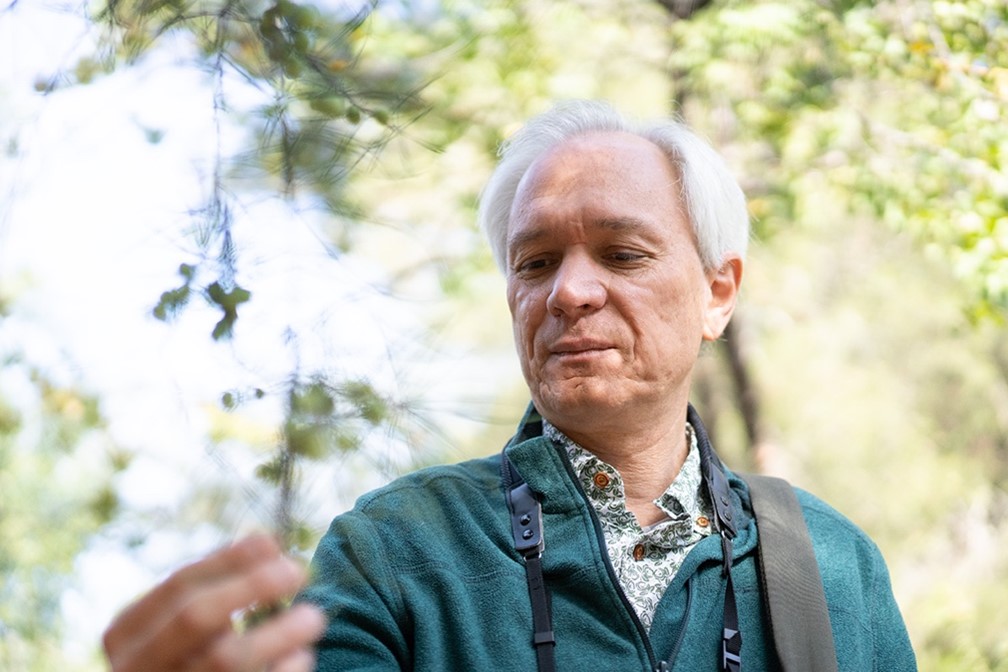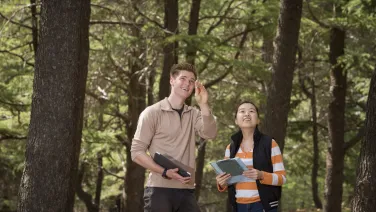Could birdwatching save biodiversity?

Colombia has more bird species than any other country in the world, so you can imagine that leading their bird conservation strategy is a pretty big job.
Just ask visiting researcher, Professor Luis Miguel Renjifo.
We meet at the Botanic Gardens, across from the ANU campus. While watching spinebills sip nectar from grevillea, Professor Renjifo fills me in on his 40-year-long career in bird conservation.
As well as leading the design of the first national strategy for the conservation of birds in Colombia, he led the team that established the first reforested conservation corridors in South America, and, bringing together diverse groups from community, government and NGOs, developed the first red data books and red list index for threatened bird species.
Considering Professor Renjifo’s mega-career that matches his mega-diverse country of origin, you might wonder why he has come halfway around the world to visit Australia.
He explains that he isn’t just here for the birds and ecosystems, he is here to study the people that watch them.
“I want to understand why people visit and enjoy nature, especially birdwatching,” says Professor Renjifo.
While we might think of birdwatching as a niche hobby, Professor Renjifo says that in Colombia it is having a huge impact.
“In 2016, a peace agreement ended 50 years of armed conflict. This has increased birdwatching-based ecotourism, which has led to new opportunities for biodiversity conservation.”
And it’s not just the birds who are benefiting.
“There are many Colombians from local communities that have grown up very poor, they didn’t have many chances in their lives and would have found it hard to get away from that poverty trap”, he says.
"Becoming a tour guide or starting birdwatching businesses has provided them with a good income, and a good way to educate their children. It has connected them with the world. It has transformed their lives.”
While the changes to Colombia’s social and political landscape have benefited conservation projects centred around ecotourism, they have also dramatically increased deforestation. Renjifo says that we are now at a critical juncture for Colombia’s biodiversity.
“If we are to safeguard species into the future, effective action is urgently needed.”
The world has already lost 60 percent of its biodiversity in the last 40 years. With Colombia currently holding one fifth of the world’s biodiversity, that number is set to plummet if its habitats aren’t protected.
So how do you get people to care?
Renjifo wants people to know and love Colombia’s birdlife, to be proud of what is there, and to want to protect it.
“Most people living in cities don't grow up knowing birds or nature”, says Renjifo. However, he believes that if people engage in activities like birdwatching from a young age, it can help people form a bond with nature that lasts throughout their life.
Renjifo fondly recounts a story.
“I have this vivid memory of working in a reserve about 30 years ago, when a group of small children came to visit from the city.
“We took them into the forest at night, turned off our torches, and told them to be quiet. The owls were hooting and the frogs were croaking. Then we turned on a single torch and a sea of tiny twinkly lights beamed back at us. They were the eyes of spiders.
“The awe and amazement in the children’s faces, and the multitude of questions they had, it has stuck with me. It was a really beautiful experience.”

Professor Luis Miguel Renjifo is a professor from Pontificia Universidad Javeriana, Colombia, visiting the Fenner School of Environment & Society at ANU.
This article was first published on the Fenner School website.






